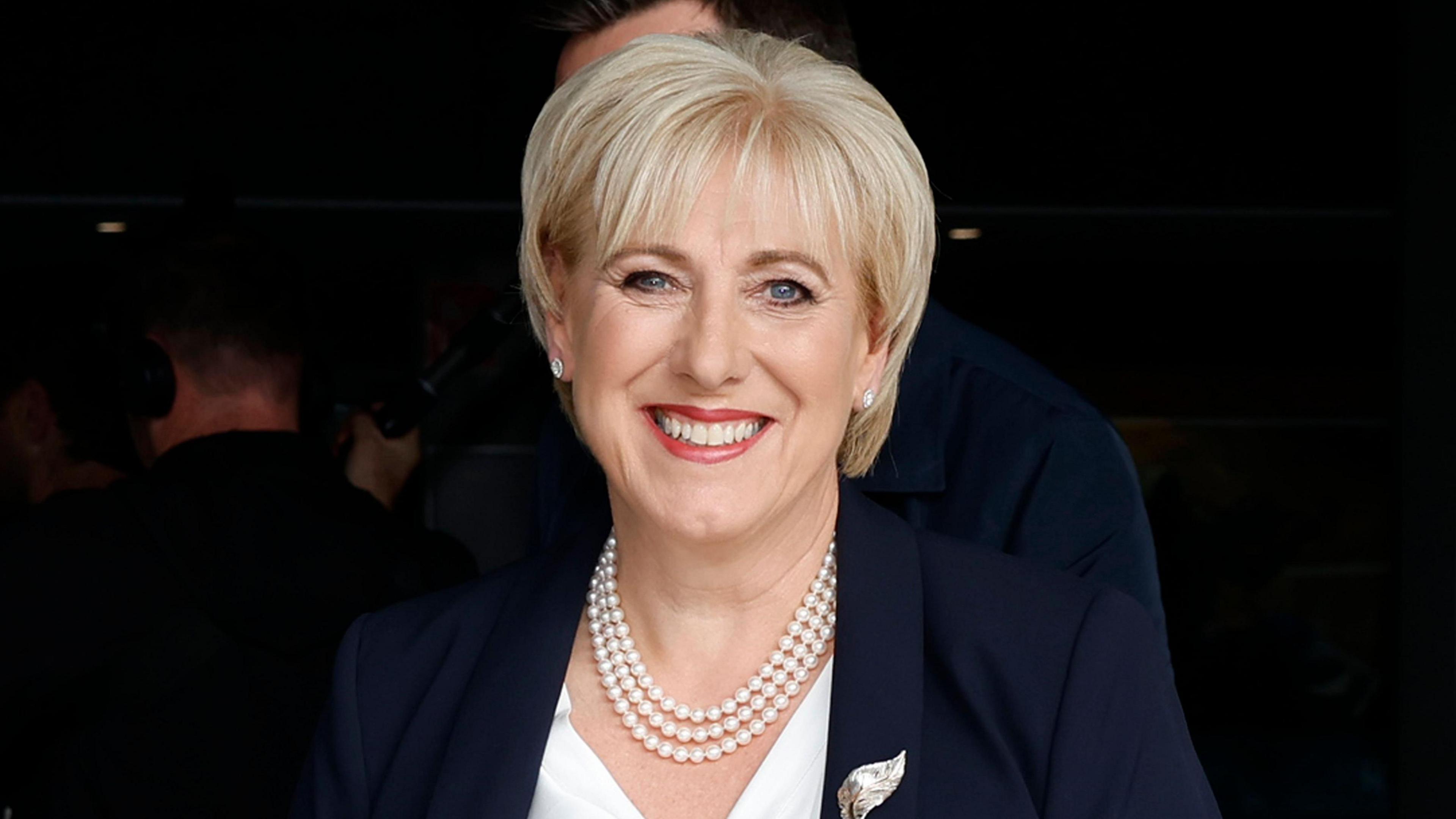Presidential candidate calls for Irish unity preparation
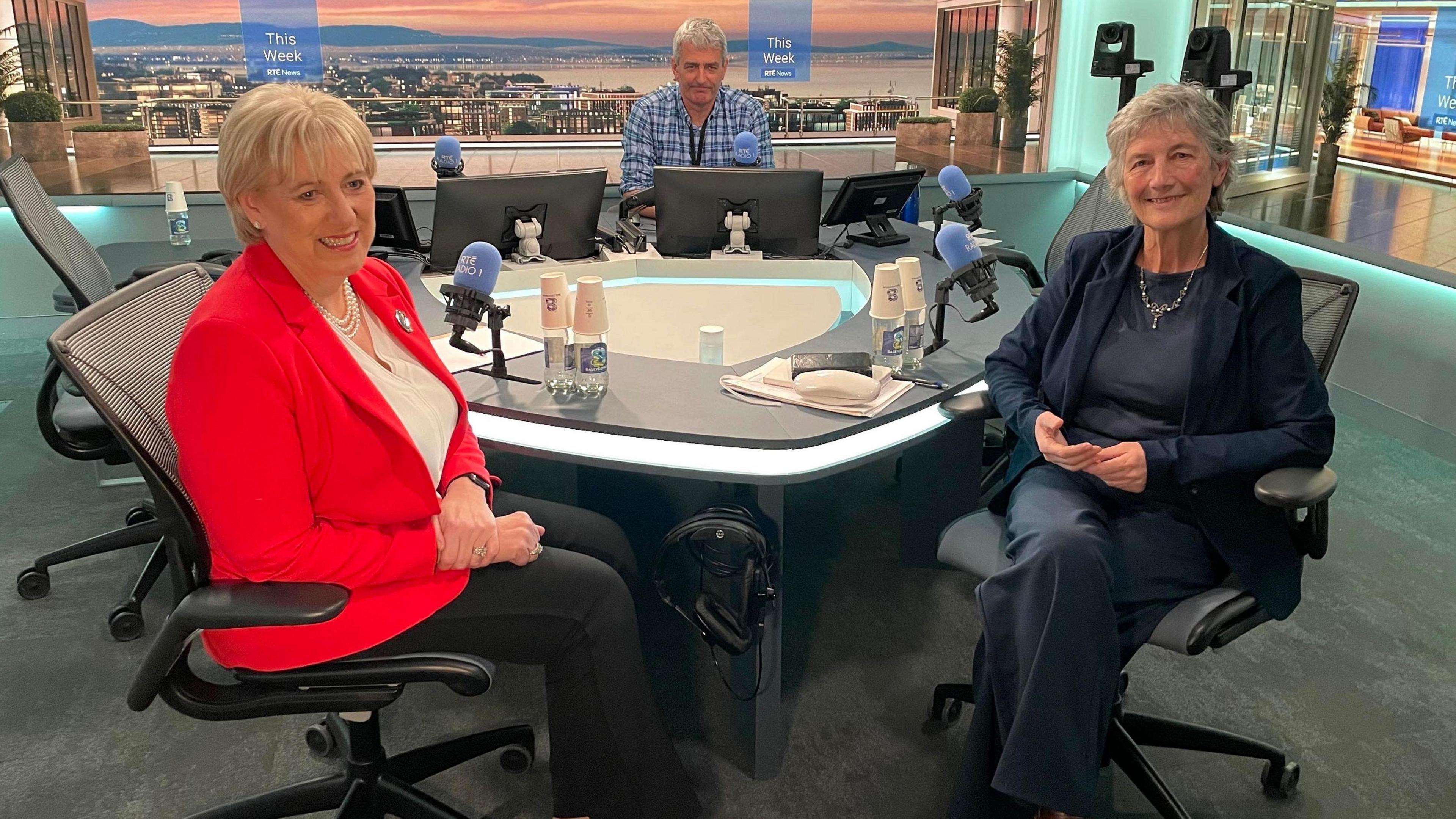
Irish presidential candidates Heather Humphreys and Catherine Connolly with RTÉ presenter David McCullagh
- Published
One of the two candidates contesting the Irish presidential election has called on the Irish government to prepare for a united Ireland.
Catherine Connolly, who has the support of a broad alliance of left-leaning politicians, including the biggest opposition party Sinn Féin, made the comment during a presidential debate on Sunday.
She is contesting the election alongside Heather Humphreys who is representing the Fine Gael party, which is part of the country's coalition government.
Connolly said: "I think the Good Friday Agreement has set the framework and the various cross-border infrastructures that have been set up are working very well."
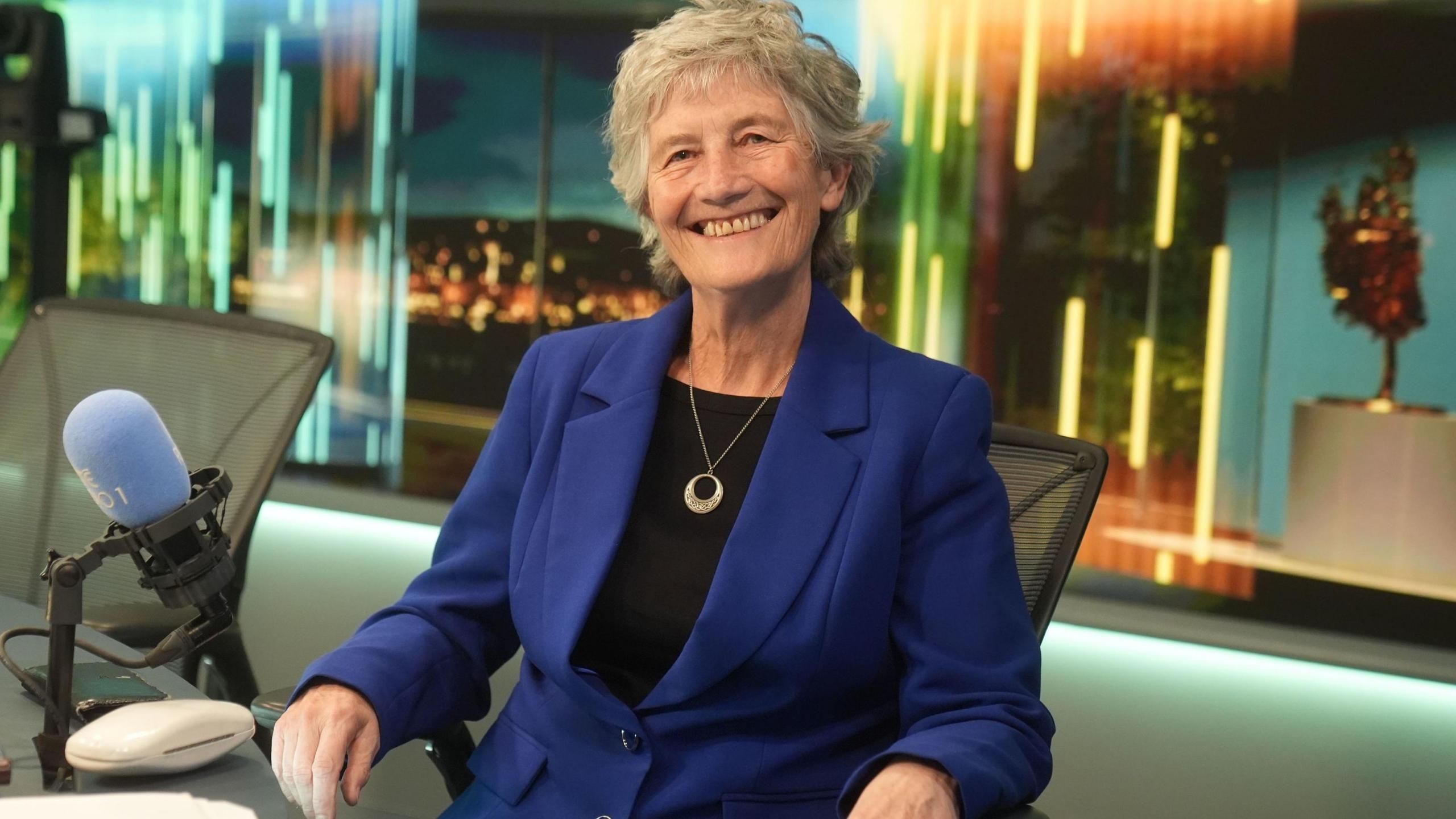
Catherine Connolly
She continued: "In addition, Article 3 of the (Republic of Ireland's) constitution has set out that it's the firm will of the Irish people, with consent and with all diversity and all different communities that we would have a united Ireland.
"I think we need to prepare for that, the government needs to prepare for that."
She also said a cross-party committee had asked the Irish government for a green paper and to set out steps towards unity.
"That hasn't happened, unfortunately," Connolly said.
Connolly also said that if elected president her first visit would be across the border to Northern Ireland.
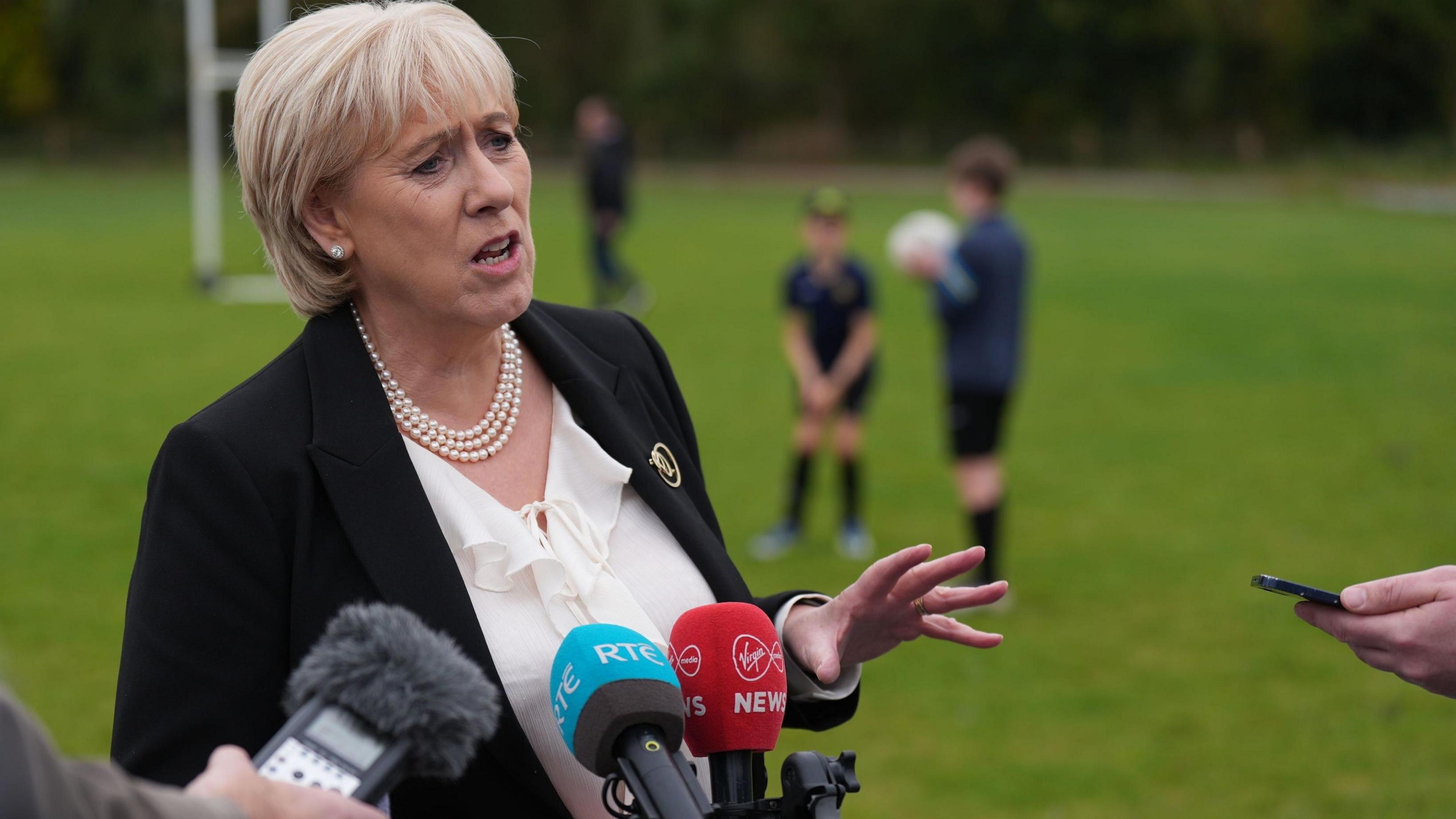
Heather Humphreys
Speaking during the debate, which was broadcast on radio and TV by the Irish broadcaster RTÉ, Humphreys said there is a need to "build trust".
The Fine Gael candidate, who comes from the Protestant community six miles from the border in Co Monaghan, said she has "a close working relationship with many people on the other side of the border".
She spoke about a recent campaign visit to a school in the nationalist Falls Road area of Belfast and a Protestant community in Newtownabbey where, she said, she was told that while there is now peace "there is still a lot of division in Northern Ireland".
"I am uniquely placed to extend that hand of friendship, to have those conversations, and to build on the work that (former Irish president) Mary McAleese did in building bridges," Humphreys said.
"I have a unique and a deep understanding and we need to build trust in Northern Ireland because there is a lot of mistrust there, and we also need to educate people right across this country on the different traditions that we have."
Clash over Irish neutrality
The two candidates clashed during the debate on the issue on an Irish government plan to remove the country's 'triple lock', which refers to arrangements under which members of the country's Defence Forces may be deployed for service outside of the state.
At present, it requires UN approval, a decision by the Irish government and a vote in the Dáil (Irish parliament).
The Irish government says its proposal would reinforce the country's ability to pursue an independent foreign policy by removing the power of UN Security Council permanent members to veto any Irish decision.
During Sunday's debate, Connolly said there should be a referendum about the 'Triple Lock'.
She said it is "at the core of our neutrality".
"Neutrality is one of the most important policies that we have," Connolly added.
"It should be used proactively so that we can bring peace as best we can in the world."
Asked how she would deal with the matter if it came before her if she was elected president, she said: "My role as president would be to look at every piece of legislation that comes before me for one specific purpose to see is it in compliance with the constitution.
"I would look at that and take the expert advice from the Council of State and make up my mind about that and the only option open to me would be to refer the matter to the Supreme Court for their decision,"
Humphreys also said: "I fully, fully support our neutrality, it has served us well, absolutely support it."
However, she explained that she understood the government position on the 'triple lock' and asked: "Should we have to ask Russia or China or the US or any other country that's on the UN Security Council? They have a veto.
"Should we have to get their permission so that we can send our peacekeeping forces on peacekeeping missions?"
Related topics
- Published8 October
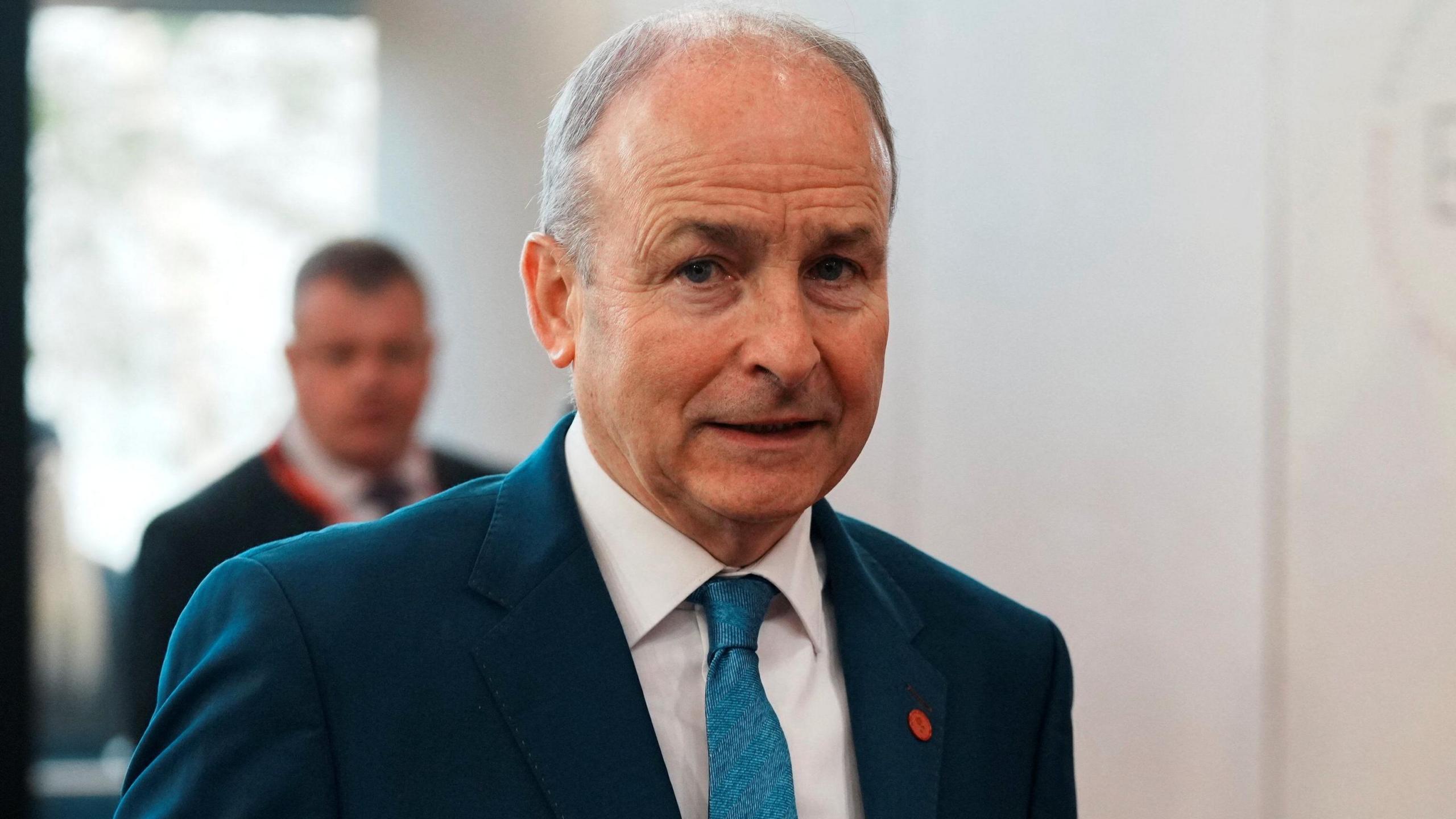
- Published7 October
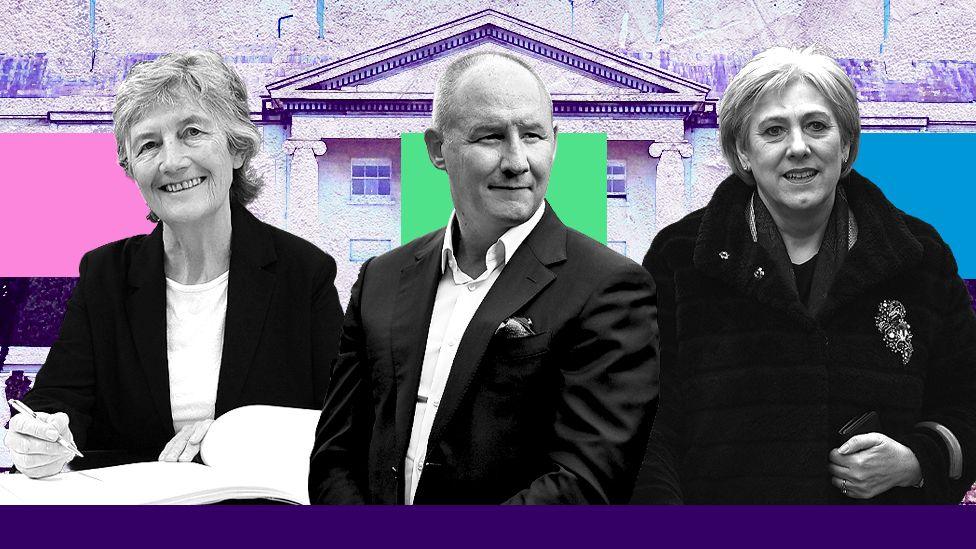
- Published8 October
